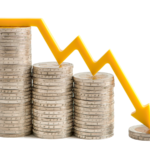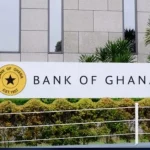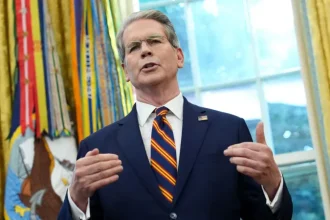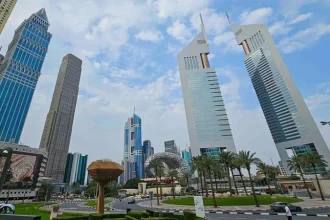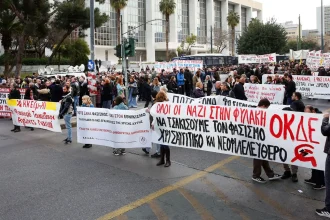The International Monetary Fund (IMF) has provided $67.38 million in funding under the Rapid Financing Instrument to Equatorial Guinea to address a large financing gap arising from the country’s twin shocks.
The fund, which was approved by the IMF Executive Board on September 15, is to enable the country to recover from the ravaging effects of the Covid-19 on its economy and the March 2021 Bata explosions that killed more than 100 people.
Areas where the funds are expected to be used include residential housing, schools, utility lines destroyed by the explosions, and continued financing of the country’s pandemic containment plan.
The country’s Minister of Finance, Economy and Planning, Valentin Ela Maye, has noted that despite the efforts deployed in preventing the Covid-19, the country’s capacity to continue managing the health emergency had remained limited.
As such, he said, “it is imperative that we strengthen hospital infrastructure and increase medical staffing at all levels, particularly after the recent spike in the number of infections being monitored by the Health Department.”
“It is also critical that we allocate resources to support a post-Covid-19 strategy to aid the recovery of small and medium-sized enterprises (SMEs) of the non-oil sector, which are the country’s principal engine of job creation,” he added.
Meanwhile, the government of Equatorial Guinea has pledged to ensure efficient use of the funds for its intended purposes, noting that it was determined to continue with other structural reforms to strengthen the private business sector.
These reforms would include clearing domestic arrears, which would also benefit the national banking system by improving financial indicators and strengthening the tax and customs administration.
There would also be the modernisation of the public financial management framework to advance all the actions that would the government to us increase revenue collection and improve the business climate.
“Another priority in our agenda is to promote economic diversification away from the hydrocarbon sector. In fact, the new Sustainable Development Strategy Agenda Guinea Equatorial 2035 has been recently approved,” Mr Maye stated.
Transparency
On the issue of transparency, he said the government had was determined to implement the necessary actions to improve governance and fight corruption.
He said, “this commitment is backed by the implementation of the prior actions concerning the transparent use of resources required for access to the IMF emergency loan.”
“The contracting of international audit firms to ensure the proper use of expenditure relating to both Covid-19 and the Bata emergency response attests to our government’s commitment,” he added.
The finance minister also stated that to increase transparency in the hydrocarbon sector, they were finalising an information report on the sector and audits of the state oil and gas companies and would publish all these reports.
Equatorial Guinea needs emergency assistance – IMF
In a statement issued by the IMF on Monday regarding the fund, it said, “the twin shocks of the pandemic and explosions were too much to overcome without emergency assistance.”
“The pandemic continues to batter Equatorial Guinea, like most countries in the region. To add to the unfolding health crisis, a series of massive accidental explosions at a military compound ripped through Bata, its largest city, this year, killing more than 100 people and causing widespread damage (about 2.5% of GDP),” the IMF explained.





